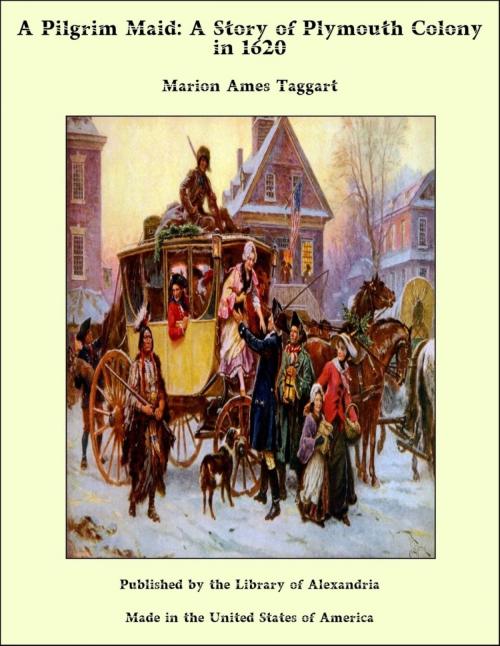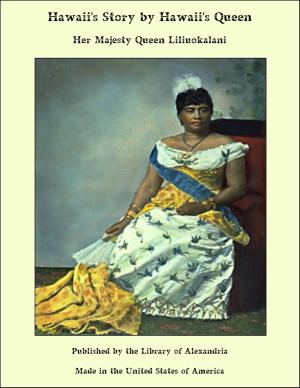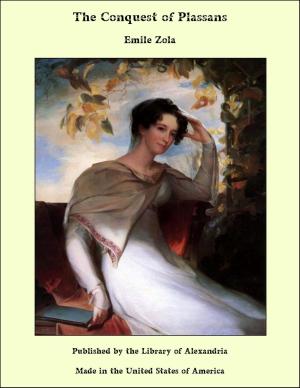A Pilgrim Maid: A Story of Plymouth Colony in 1620
Nonfiction, Religion & Spirituality, New Age, History, Fiction & Literature| Author: | Marion Ames Taggart | ISBN: | 9781465603043 |
| Publisher: | Library of Alexandria | Publication: | March 8, 2015 |
| Imprint: | Language: | English |
| Author: | Marion Ames Taggart |
| ISBN: | 9781465603043 |
| Publisher: | Library of Alexandria |
| Publication: | March 8, 2015 |
| Imprint: | |
| Language: | English |
A young girl, brown-haired, blue-eyed, with a sweet seriousness that was neither joy nor sorrow upon her fair pale face, leaned against the mast on the Mayflower's deck watching the bustle of the final preparations for setting sail westward. A boy somewhat older than she stood beside her whittling an arrow from a bit of beechwood, whistling through his teeth, his tongue pressed against them, a livelier air than a pilgrim boy from Leyden was supposed to know, and sullenly scorning to betray interest in the excitement ashore and aboard. A little girl clung to the pretty young girl's skirt; the unlikeness between them, though they were sisters, was explained by their being but half sisters. Little Damaris was like her mother, Constance's stepmother, while Constance herself reflected the delicate loveliness of her own and her brother Giles's mother, dead in early youth and lying now at rest in a green English churchyard while her children were setting forth into the unknown. Two boys—one older than Constance, Giles's age, the other younger than the girl—came rushing down the deck with such impetuosity, plus the younger lad's head used as a battering ram, that the men at work stowing away hampers and barrels, trying to clear a way for the start, gave place to the rough onslaught. Several looked after the pair in a way that suggested something more vigorous than a look had it not been that fear of the pilgrim leaders restrained swearing. Not a whit did the charging lads care for the wrath they aroused. The elder stopped himself by clutching the rope which Constance Hopkins idly swung, while the younger caught Giles around the waist and nearly pulled him over. "I'll teach you manners, you young savage, Francis Billington!" growled Giles, but he did not mean it, as Francis well knew.
A young girl, brown-haired, blue-eyed, with a sweet seriousness that was neither joy nor sorrow upon her fair pale face, leaned against the mast on the Mayflower's deck watching the bustle of the final preparations for setting sail westward. A boy somewhat older than she stood beside her whittling an arrow from a bit of beechwood, whistling through his teeth, his tongue pressed against them, a livelier air than a pilgrim boy from Leyden was supposed to know, and sullenly scorning to betray interest in the excitement ashore and aboard. A little girl clung to the pretty young girl's skirt; the unlikeness between them, though they were sisters, was explained by their being but half sisters. Little Damaris was like her mother, Constance's stepmother, while Constance herself reflected the delicate loveliness of her own and her brother Giles's mother, dead in early youth and lying now at rest in a green English churchyard while her children were setting forth into the unknown. Two boys—one older than Constance, Giles's age, the other younger than the girl—came rushing down the deck with such impetuosity, plus the younger lad's head used as a battering ram, that the men at work stowing away hampers and barrels, trying to clear a way for the start, gave place to the rough onslaught. Several looked after the pair in a way that suggested something more vigorous than a look had it not been that fear of the pilgrim leaders restrained swearing. Not a whit did the charging lads care for the wrath they aroused. The elder stopped himself by clutching the rope which Constance Hopkins idly swung, while the younger caught Giles around the waist and nearly pulled him over. "I'll teach you manners, you young savage, Francis Billington!" growled Giles, but he did not mean it, as Francis well knew.















